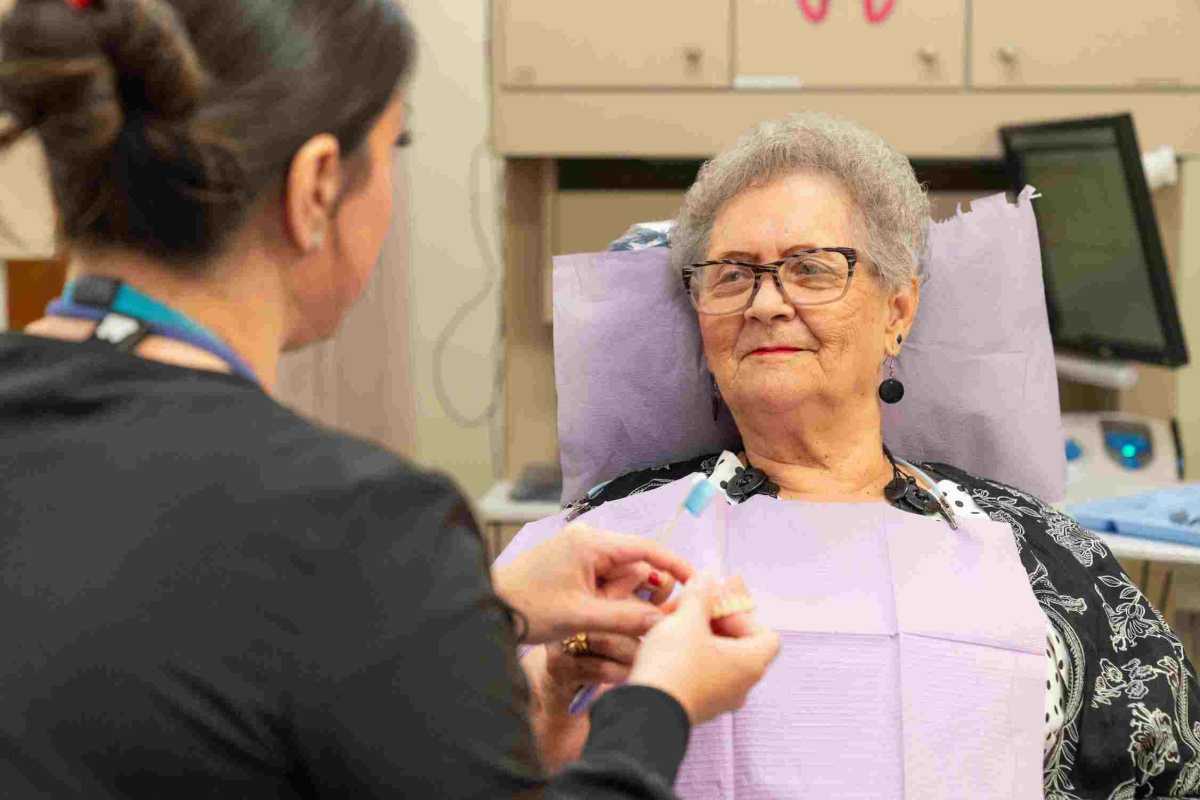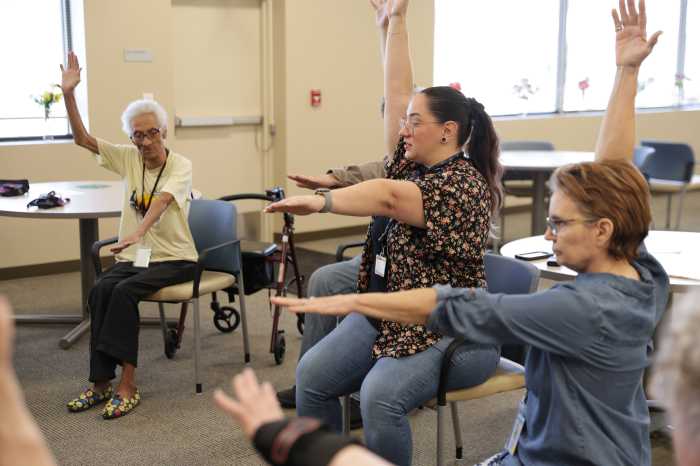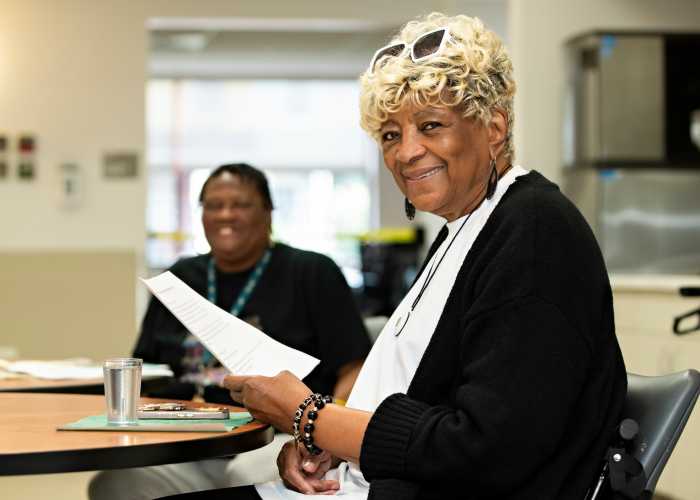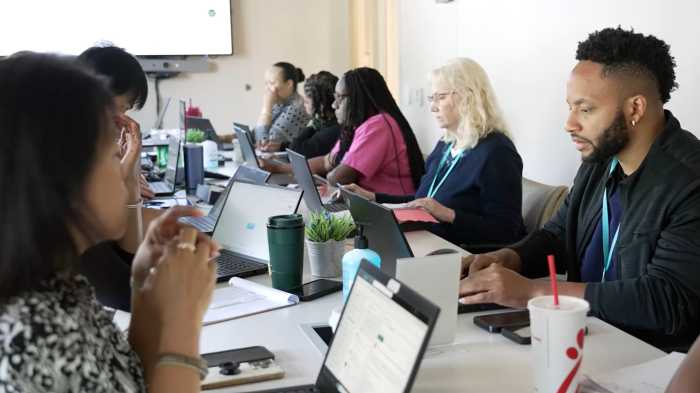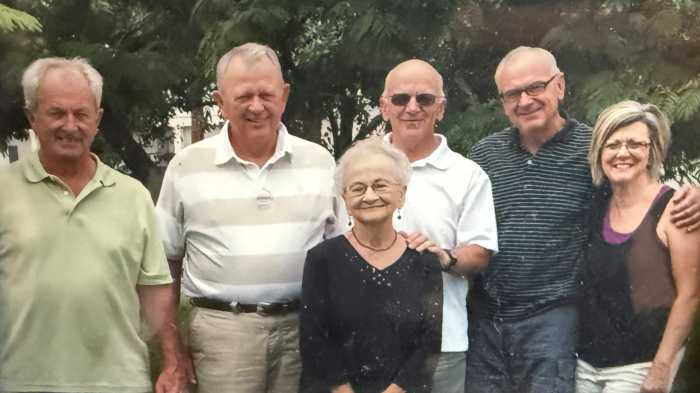For many older adults, oral health and hygiene are often overlooked.
According to the Center for Disease Control and Prevention, 1 in 6 adults aged 65 or older have lost all of their teeth and that one-third of older adults have untreated tooth decay. Chronic conditions such as diabetes, heart disease, stroke, and respiratory disease are often linked to severe gum disease.
PACE and InnovAge Pennsylvania’s modern eldercare LIFE (Living Independence for the Elderly) programs can help seniors keep their teeth and gums in tip top shape.
October is National Dental Hygiene Month, and while it’s a call to action for all-ages, for America’s seniors 55-years-and-older, it’s a call to arms.
“Oral health has an impact on systemic health, and if people don’t take care of their mouth, it can lead to serious medical issues,” says Dr. Diane Earle, InnovAge’s vice president of dental care services.
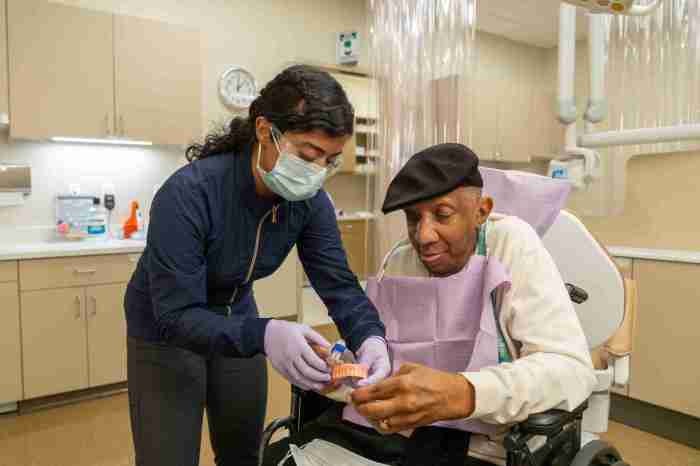
InnovAge offers a comprehensive oral health and hygiene program for older adults — an essential benefit for all of its patients. At InnovAge, experienced dentists and periodontists work exclusively with seniors 55-plus doing everything from dialing-up tailored treatment and education agendas, such as adding identifiers on dentures and embedding names in prosthetic appliances, to tending to medical conditions such as arthritis and carpal tunnel syndrome, that make brushing or flossing difficult.
The InnovAge oral care teams stress regular dental exams and teeth cleanings for the purpose of prevention and early detection of health issues such as oral cancer, infections around the gum line, cysts, and more.
“InnovAge’s dental team will take x-rays and look at a participant’s oral tissue to check for disease or missing teeth,” said Earle. “Clinicians will do their cleaning and will make a diagnosis, and decide on any necessary treatment or replacements.”
Though InnovAge’s dental program is in place on a daily basis, Earle asks patients to be on the lookout for warning signs such as dry mouth (often a side effect of medications), white patches on tongue, bad breath, bruising on the palate or back of throat, loose teeth, swelling or bleeding gums, jaw pain and all mouth sores, lumps, and gum pimples as potential signs of dental distress in need of immediate care.
“Having a regular check-in allows your dentist and other specialists to be on your team,” says Earle. “These services can include a wide range of medically necessary treatment to restore function, treat disease, and eliminate pain.”
While InnovAge dentists and periodontists are trained to “spot something that you might overlook,” Earle urges all elder patients to take control of their oral health on a daily basis by flossing and brushing teeth or dentures at least twice a day, switching to a fluoride toothpaste and drinking tap water, using antibacterial mouthwash to reduce plaque buildup, and, of course, visiting InnovAge’s dentists regularly.
“Seeing your dentist twice a year is really important for everyone, regardless of your age,” says Earle. “InnovAge specializes in customized healthcare services and social engagement, but everyone needs these gentle reminders, not just our participants.”
Sponsored content produced in partnership with InnovAge.



